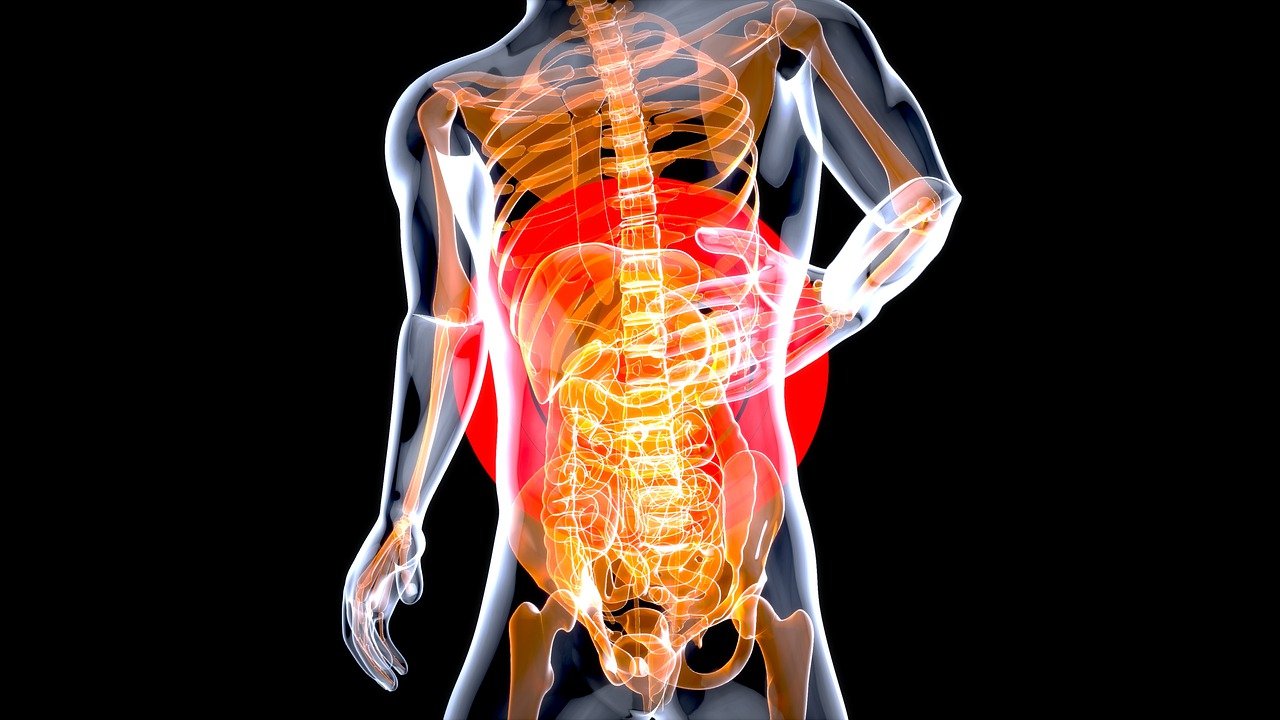You’re probably familiar with the discomfort that comes from digestive issues, from bloating and stomach pains to irregular bowel movements. It’s no secret that these problems can put a damper on your overall well-being. That’s why many people are turning to supplements as a possible solution. But can these supplements actually help improve digestion? And what about their effectiveness when it comes to addressing specific health conditions? In this article, we’ll explore the potential benefits of supplements for digestion and whether they can truly make a difference in your quest for a healthier gut.

Understanding Digestive Issues
Digestive issues are a common problem that many people experience at some point in their lives. These issues can range from mild discomfort to more severe conditions that significantly impact daily life. Understanding the common digestive problems, their causes, and the importance of a healthy digestive system is crucial in addressing and preventing these issues.
Common digestive problems
Some of the most common digestive problems include bloating, gas, indigestion, acid reflux, constipation, and diarrhea. These issues can be caused by various factors, such as poor diet, stress, food intolerances, and certain medical conditions. It is important to recognize the symptoms of these problems and take appropriate steps to address them.
Causes of digestive issues
There are several causes of digestive issues. A diet high in processed foods, sugar, and unhealthy fats can disrupt the balance of beneficial bacteria in the gut, leading to digestive problems. Stress and anxiety can also affect digestion by causing imbalances in the digestive system. Additionally, certain medical conditions, such as irritable bowel syndrome (IBS) and celiac disease, can contribute to digestive issues.
The importance of a healthy digestive system
A healthy digestive system is crucial for overall well-being. The digestive system is responsible for breaking down food, absorbing nutrients, and eliminating waste. When the digestive system is functioning properly, it allows the body to receive the necessary nutrients for optimal health. Additionally, a healthy digestive system supports a strong immune system, as a large portion of the immune system is located in the gut. Therefore, maintaining a healthy digestive system is essential for overall health and well-being.
Supplements for Digestion
In addition to lifestyle changes and a healthy diet, digestive supplements can play a beneficial role in improving digestion. These supplements are specifically designed to support and enhance the functioning of the digestive system. There are various types of digestive supplements available, each targeting different aspects of digestion.
What are digestive supplements?
Digestive supplements are products that contain specific ingredients aimed at improving digestion. These supplements may include probiotics, digestive enzymes, fiber, or herbal extracts that promote good digestion. They are available in various forms, such as capsules, tablets, powders, or liquids, and can be found in health food stores or pharmacies.
Types of digestive supplements
There are several types of digestive supplements available, each offering unique benefits for digestion. The most common types include probiotics, digestive enzymes, fiber supplements, and herbal supplements.
Probiotics for digestion
Probiotics are beneficial bacteria that can help restore and maintain a healthy balance of gut bacteria. These live microorganisms can improve digestion by promoting the breakdown of food and the absorption of nutrients. Probiotic supplements come in various strains, and each strain has different benefits for digestion.
Digestive enzymes
Digestive enzymes are substances produced by the body that help break down food into smaller, more easily digestible components. Supplementing with digestive enzymes can support the body’s natural enzymatic processes, aiding in the digestion and absorption of nutrients.
Fiber supplements
Fiber is essential for healthy digestion as it adds bulk to the stool, promotes regular bowel movements, and helps prevent constipation. Fiber supplements can provide an additional source of dietary fiber and support healthy digestion.
Herbal supplements for digestion
Herbal supplements, such as peppermint, ginger, and chamomile, have been used for centuries to support digestive health. These natural ingredients can help alleviate digestive discomfort, reduce inflammation, and soothe the digestive system.
Probiotics and Digestion
Probiotics play a crucial role in supporting a healthy digestive system. These beneficial bacteria have numerous benefits for digestion and overall well-being.
The role of probiotics
Probiotics help maintain a healthy balance of gut bacteria, which is essential for digestion. They can help improve the breakdown and absorption of nutrients, promote regular bowel movements, and support a healthy immune system. Additionally, probiotics help prevent the overgrowth of harmful bacteria in the gut, reducing the risk of digestive issues.
How probiotics improve digestion
Probiotics improve digestion by enhancing the breakdown and absorption of nutrients. They produce enzymes that aid in the digestion of carbohydrates, fats, and proteins. Probiotics also help strengthen the intestinal lining, reducing the risk of leaky gut syndrome and improving overall digestive function.
Best probiotic strains for digestion
Different probiotic strains have unique benefits for digestion. Some of the best strains for digestion include Lactobacillus acidophilus, Bifidobacterium lactis, and Lactobacillus plantarum. These strains have been extensively studied for their effects on digestion and have been shown to improve symptoms of bloating, gas, and indigestion.
Choosing the right probiotic supplement
When choosing a probiotic supplement for digestion, it is important to consider factors such as the specific strains included, the number of colony-forming units (CFUs), and whether the supplement requires refrigeration. It is also beneficial to look for third-party testing or certifications to ensure the quality and efficacy of the product. Consulting with a healthcare professional can also help determine the best probiotic supplement for individual needs.
Digestive Enzymes and Digestion
Digestive enzymes play a vital role in the breakdown and absorption of nutrients. Supplementing with digestive enzymes can support the body’s natural enzymatic processes and improve digestion.
The function of digestive enzymes
Digestive enzymes are responsible for breaking down carbohydrates, proteins, and fats into smaller molecules that can be absorbed by the body. These enzymes are produced by the pancreas, liver, and small intestine and are essential for proper digestion and nutrient absorption.
How digestive enzymes aid digestion
Supplementing with digestive enzymes can alleviate the strain on the body’s natural enzyme production. This can be particularly beneficial for individuals with conditions that affect enzyme production or those with weakened digestive systems. Digestive enzyme supplements can help improve the breakdown and absorption of nutrients, reducing symptoms of bloating, gas, and indigestion.
Benefits of digestive enzyme supplements
Digestive enzyme supplements offer several benefits for digestion. They can help improve nutrient absorption, promote regular bowel movements, and reduce digestive discomfort. Digestive enzymes also play a role in reducing inflammation in the digestive tract, supporting overall digestive health.
Considerations when using digestive enzyme supplements
While digestive enzyme supplements can be beneficial for digestion, it is important to use them as directed and in consultation with a healthcare professional. Some individuals may have underlying health conditions or sensitivities that require specific enzyme formulations or dosages. Additionally, digestive enzyme supplements should not be used as a substitute for a healthy diet and lifestyle changes.

Fiber Supplements and Digestion
Fiber is an essential component of a healthy diet and plays a crucial role in digestion. Supplementing with fiber can support regular bowel movements and overall digestive health.
Importance of dietary fiber for digestion
Dietary fiber is the indigestible part of plant foods that moves through the digestive system, adding bulk to the stool and promoting regular bowel movements. It helps prevent constipation, supports the growth of beneficial gut bacteria, and aids in the removal of waste from the body.
Types of fiber supplements
Fiber supplements can be categorized into two main types: soluble and insoluble fiber. Soluble fiber dissolves in water and forms a gel-like substance in the digestive tract. It helps soften the stool and promotes regular bowel movements. Insoluble fiber, on the other hand, does not dissolve in water and adds bulk to the stool, aiding in the proper functioning of the digestive system.
How fiber supplements improve digestion
Fiber supplements provide an additional source of dietary fiber, ensuring that individuals meet their daily fiber requirements. They can help regulate bowel movements, prevent constipation, and support a healthy gut microbiome. Fiber supplements also help promote feelings of fullness, which can aid in weight management and prevent overeating.
Finding the right fiber supplement
When choosing a fiber supplement, it is important to consider personal preferences and individual needs. Some individuals may prefer soluble fiber supplements, while others may benefit more from insoluble fiber supplements. It is also essential to start with a low dosage and gradually increase it to prevent digestive discomfort. Consulting with a healthcare professional is recommended to determine the appropriate type and dosage of fiber supplement for specific requirements.
Herbal Supplements for Digestion
Herbal supplements have been used for centuries to support digestive health. Many herbs have beneficial effects on digestion and can help alleviate digestive discomfort.
Popular herbal supplements for digestion
Several herbal supplements are commonly used to support digestion. Some of the most popular ones include peppermint, ginger, chamomile, and fennel. These herbs have natural properties that can help soothe the digestive tract, reduce inflammation, and alleviate symptoms such as bloating and indigestion.
Different herbs and their effects on digestion
Peppermint is known for its calming effect on the digestive system. It can help relax the muscles of the gastrointestinal tract, reducing symptoms of bloating and gas. Ginger has been used for centuries to alleviate digestive discomfort, including nausea and indigestion. Chamomile has soothing properties and can help reduce inflammation in the digestive tract. Fennel is often used to relieve symptoms of indigestion, bloating, and flatulence.
Dosage and recommended use of herbal supplements
When using herbal supplements for digestion, it is important to follow the recommended dosage and guidelines. Each herb may have different recommended dosages and usage instructions. It is advisable to consult with a healthcare professional or herbalist to ensure safe and effective use of herbal supplements.
Potential side effects and interactions
While herbal supplements are generally considered safe, it is important to be aware of potential side effects and drug interactions. Some herbs may cause allergic reactions or interact with certain medications. It is crucial to inform healthcare professionals about any herbal supplements being used to ensure there are no potential risks or interactions.

When to Consider Digestive Supplements
Digestive supplements can be beneficial in certain situations when lifestyle changes alone are not enough to improve digestion.
Signs of poor digestion
Signs of poor digestion include bloating, gas, indigestion, constipation, diarrhea, and abdominal pain. If these symptoms persist or interfere with daily life, it may be necessary to consider digestive supplements to address the underlying issues.
When lifestyle changes aren’t enough
In some cases, dietary and lifestyle changes alone may not be enough to improve digestion. For individuals with chronic digestive problems or specific medical conditions, digestive supplements can provide additional support to enhance digestion and alleviate symptoms.
Consulting with a healthcare professional
Before starting any digestive supplements, it is important to consult with a healthcare professional. They can evaluate individual needs, assess any underlying conditions, and provide guidance on the appropriate use of supplements. This is particularly important for individuals who are taking medications or have pre-existing health conditions.
Understanding potential risks and benefits
While digestive supplements offer potential benefits, it is essential to understand the risks and benefits associated with their use. Some supplements may have side effects or interact with medications. It is important to weigh the potential risks against the potential benefits when considering the use of digestive supplements.
Digestive Supplements and Overall Health
Improving digestion through the use of supplements can have a significant impact on overall health and well-being. A healthy digestive system is essential for nutrient absorption, reducing digestive discomfort, and supporting a strong immune system.
Impact of digestion on overall health
Digestion plays a crucial role in overall health. When the digestive system is functioning optimally, it allows for the proper absorption of nutrients, which are essential for energy production, immune function, and overall vitality. Digestive issues, on the other hand, can result in nutrient deficiencies and a weakened immune system.
Improving nutrient absorption
Digestive supplements, such as probiotics, digestive enzymes, and fiber, can help improve nutrient absorption. Probiotics enhance the breakdown and absorption of nutrients, while digestive enzymes aid in the digestion and absorption of carbohydrates, proteins, and fats. Fiber supplements support the movement of food through the digestive system, ensuring optimal nutrient absorption.
Reducing digestive discomfort
Digestive supplements can alleviate symptoms of digestive discomfort, such as bloating, gas, and indigestion. Probiotics can help restore the balance of gut bacteria, reducing inflammation and promoting a healthy gut. Digestive enzymes aid in the breakdown of food, reducing the risk of indigestion and bloating. Fiber supplements promote regular bowel movements, preventing constipation and reducing discomfort.
Supporting a healthy immune system
A healthy immune system relies on a healthy digestive system. The gut is home to a large portion of the immune system, and maintaining a balanced gut microbiome is crucial for optimal immune function. Digestive supplements, such as probiotics, can support a healthy gut by enhancing the growth of beneficial bacteria and reducing the risk of harmful bacteria overgrowth.

Choosing and Using Digestive Supplements
When considering and using digestive supplements, there are several factors to keep in mind. It is important to consider individual needs, the quality and safety of supplements, dosage and timing, and monitoring the effects.
Considering individual needs
Individual needs can vary when it comes to digestive supplements. It is important to consider specific digestive concerns, underlying health conditions, and any sensitivities or allergies. Consulting with a healthcare professional can help determine the best supplements for individual needs.
Quality and safety of supplements
When choosing digestive supplements, it is crucial to ensure their quality and safety. Look for reputable brands that follow good manufacturing practices and have third-party testing or certifications. Checking for potential allergens or additives is also important, especially for individuals with sensitivities or allergies.
Dosage and timing
The dosage and timing of digestive supplements can vary depending on the specific supplement and individual needs. It is important to follow the recommended dosage and usage instructions provided by the manufacturer. Some supplements may need to be taken with meals, while others may be more effective when taken on an empty stomach. Reading the product labels and consulting with a healthcare professional can provide guidance on the appropriate dosage and timing.
Monitoring the effects
It is important to monitor the effects of digestive supplements to assess their efficacy. If symptoms persist or worsen, it may be necessary to adjust the dosage or switch to a different supplement. Regular monitoring, along with lifestyle changes and the guidance of a healthcare professional, can optimize the use of digestive supplements.
Conclusion
Digestive supplements can be a valuable addition to a healthy lifestyle when it comes to improving digestion. By understanding the common digestive problems, the role of supplements like probiotics, digestive enzymes, fiber, and herbal extracts, individuals can take steps to support and enhance their digestive system. It is important to consider individual differences, consult with healthcare professionals, and prioritize quality and safety when choosing and using digestive supplements. While supplements can complement a healthy lifestyle, it is essential to continue educating oneself, conduct further research, and seek professional guidance on specific health conditions or concerns. With the right approach and an understanding of potential risks and benefits, individuals can find relief and support for their digestive health.